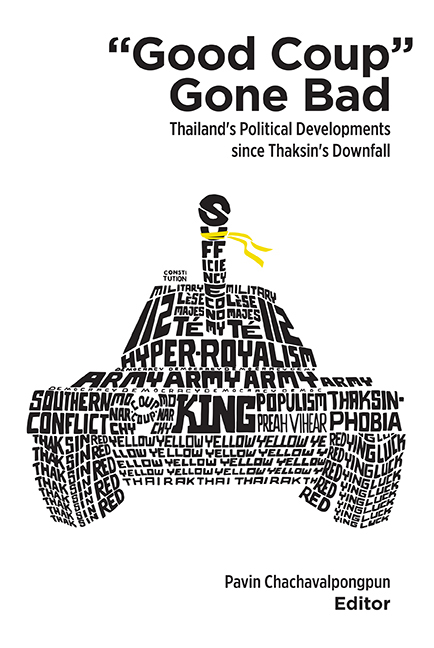Book contents
- Frontmatter
- Contents
- List of Tables and Figures
- Foreword
- Contributors
- Abbreviations
- Section I The 2006 Military Coup: Impact on the Thai Political Landscape
- Section II Defending the Old Political Consensus: The Military and the Monarchy
- Section III New Political Discourses and the Emergence of Yellows and Reds
- Section IV Crises of Legitimacy
- Index
- Plate Section
Foreword
Published online by Cambridge University Press: 21 October 2015
- Frontmatter
- Contents
- List of Tables and Figures
- Foreword
- Contributors
- Abbreviations
- Section I The 2006 Military Coup: Impact on the Thai Political Landscape
- Section II Defending the Old Political Consensus: The Military and the Monarchy
- Section III New Political Discourses and the Emergence of Yellows and Reds
- Section IV Crises of Legitimacy
- Index
- Plate Section
Summary
Even at the best of times Thai politics has not been easy to understand, and now, late in the reign of a revered and activist monarch, it is even more difficult to comprehend. Constitutions, sometimes written by the winning side that has taken power by extra-constitutional means, come and go with astonishing frequency. Since the end of the absolute monarchy in 1932 military coups have intervened so frequently (eighteen times) that regime change by force seems to be an integral part of the political process. Bloodshed often attends Thailand's political struggles. In the past four decades, the military has taken its arms into the streets several times, and national elections see a fair number of vote canvassers and journalists murdered. Little wonder that turbulence, polarization and violence describe Thai politics all too well.
The motivation for the army to cut short the electoral cycle is its self appointed responsibility to protect the monarchy if it deems the supreme institution to be threatened. The army is jealous of its prerogatives especially with regard to promotions in the upper echelon of the officer corps. Wary of the slightest political interference, it insists on control over its own line management. Thai governments that have attempted to reform the military's relationship with the parliamentary system have been promptly dispatched, as happened in 1991 and 2006. As a result of the violent crackdown and arson attacks in Bangkok in April-May 2010, the army's reputation briefly plummeted, but this was reversed by its civic activism in offering a helping hand to communities affected by the floods in late 2011. Once again, the army proved its ability to adapt and respond to changed circumstances in a popular way.
The 1997 constitution, which was abrogated in 2006, may have been as flawed as its critics have charged, but it held promise.
- Type
- Chapter
- Information
- Good Coup Gone BadThailand's Political Development since Thaksin's Downfall, pp. ix - xiiPublisher: ISEAS–Yusof Ishak InstitutePrint publication year: 2014



